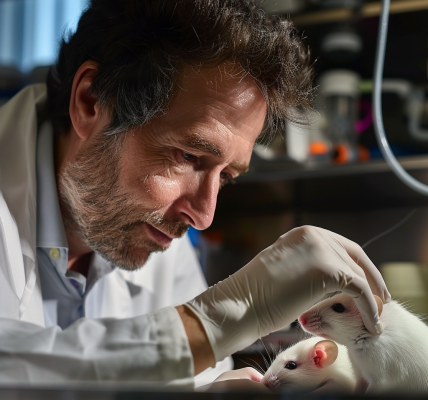 Research conducted by a team from Trinity College Dublin has unveiled crucial insights into the respiratory syncytial virus (RSV), a common yet dangerous respiratory illness. This new understanding could pave the way for more effective treatments for this virus, which poses a significant threat, particularly to infants and older adults.
Research conducted by a team from Trinity College Dublin has unveiled crucial insights into the respiratory syncytial virus (RSV), a common yet dangerous respiratory illness. This new understanding could pave the way for more effective treatments for this virus, which poses a significant threat, particularly to infants and older adults.
RSV is known to cause cold-like symptoms and is the leading cause of pneumonia and bronchiolitis in infants. With an estimated 33 million RSV cases reported globally each year, the urgency for effective treatment options is paramount. The rise in RSV cases during the winter months of 2022 in Ireland highlighted the need for advancements in treatment and prevention strategies.
In 2023, the European Union approved a series of RSV vaccines, marking a significant step forward in combating this viral infection. However, the recent discoveries by Irish scientists aim to enhance the development of these vaccines and therapeutic options. The research team has identified how RSV manages to evade the immune system, focusing on a critical biological pathway known as the JAK/STAT pathway.
The JAK/STAT pathway plays a vital role in the immune response, particularly in the activation of antiviral genes. According to Dr. Nigel Stevenson, an assistant professor at Trinity College and a senior author of the study, interferon-alpha is crucial for signaling within this pathway. It triggers the activation of numerous antiviral genes that work to combat the virus.
“When RSV interferes with the communication of interferon to these genes, it effectively puts the brakes on our immune response,” Dr. Stevenson explained. This suppression of the immune system allows the virus to establish itself and can lead to severe health complications.
The team’s findings suggest that targeting the JAK/STAT pathway could be a promising strategy for therapeutic immune restoration. Dr. Stevenson described this discovery as an “exciting revelation,” emphasizing its potential significance for drug designers. “Understanding how a virus evades our immune system is crucial for developing effective therapeutics,” he added.
The researchers are optimistic that a therapeutic targeting this pathway could significantly impact RSV treatment, potentially clearing the virus from the body. This development is particularly critical for vulnerable populations, including young children and the elderly, who are at a higher risk of severe RSV-related complications.
In a related effort, Dublin-based pharmaceutical services company Hvivo has taken steps to contribute to RSV vaccine research. The company secured a contract to utilize its human challenge model for testing a potential RSV vaccine developed by a global biotech firm. This phase 2 trial is expected to provide valuable insights into the vaccine’s efficacy and safety.
The ongoing research and trials represent a concerted effort to combat RSV, a virus that has long posed a threat to public health. As scientists continue to unravel the complexities of RSV and its interactions with the immune system, the hope for more effective treatments and vaccines becomes increasingly tangible.
As technology and medical research evolve, the fight against respiratory viruses like RSV is entering a new era, promising better outcomes for those most at risk.





